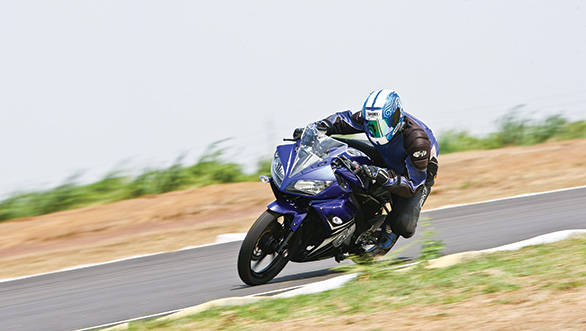Better Riding: Purchasing motorcycle safety kit for the Indian climate
I firmly believe in the American principle of ATGATT when it comes to riding. The acronym stands for "All The Gear All The Time." Which sounds borderline loony because, well, have you seen our weather? You'd die of the heat!

Wrong. I have worn full kit every day for the past ten years and I don't like being sweaty or uncomfortable any more than you do. The problem really, is simple. Most motorcycle kit is designed for European and American climates. Which means even summer jackets can be too warm for our winters sometimes. And let's face it, if you aren't comfy, you won't use it.
So, what to do? First, unless you are a track regular, or intent to be one, get past the overwhelming suggestion that it's leather or bust. Leather is protective but also heavy, warm, unwieldy to carry, hard to keep clean and expensive. Our weather favours textile stuff.
Again, ignore the stuff marked breathable. That's still too warm. Look for good venting. There should be big huge zippered vents on the chest, forearms, sometimes underarms, and most crucially exit vents at the back of the garment. These work quite nicely and can be quite warm when zippered shut for the winter. Most will come with a windproof and waterproof lining (which means rains wet the outer fabric but not you).
But my primary everyday jacket is one step ahead - mesh. Mesh literally is a strong â€" usually nylon â€" net material that allows wind to pass right through offering only marginally less ventilation than a t-shirt. Luckily for us, mesh is considered near-useless in the cold countries which also makes garments made of it cheaper.
My tip? Get a mesh jacket, ideally a snug fitting one so you can easily slip on a cheap rainsuit on top to keep the rain out during the monsoon. I have crashed multiple times in the same mesh jacket you see here in the magazine, so at street and highway speeds, protection is good enough.
Mesh pants work well also but newer designs have fabric panels that zip off to reveal a mesh surface which I find works rather well, offering you the option to use them as overpants (worn over clothes â€" slightly sweaty) or as pants (just change in the office/college loo). Depending on the brand a mesh jacket should set you back between Rs 5-9000; anything higher is unnecessary. Pants? Rs 6-10,000. Protection aside, look for soft collars, high-quality zippers, cuffs that close down firmly on your wrist, reflective patches or piping and a zipper at the back to connect pants and jacket. And remember that a cool jacket/pant can be made winter-ready with a layer or two of fleece and a windbreaker. But a warm jacket/pant is nearly impossible to make summer-worthy.
For gloves the selection is endless; buy what you like but remember a few things. Long gauntlets protect more. Motocross gloves offer nearly no protection. Buy snug, they loosen up. Waterproof gloves are usually heavily insulated which makes them bulky and cumbersome to use. The sole exception seems to be Joe Rocket's Ballistic glove, which is why it's my monsoon glove for the past six-odd years.
Helmets? We wrote a full guide sometime back. Spend wisely. Would you hire a security company of unknown history? Brands of unknown provenance are just that â€" best avoided.
Boots? Are very expensive in India because of duties combined with usually high prices to start with. Try and buy abroad if possible. If not, wear any over-the-ankle leather boots until you can afford the real things. I swear by race boots even for daily commuting but before I discovered these, my hard-wearing ex-army DMS boots worked well.
Which brands to buy? This is a personal decision. But I do know that the level of protection across price ranges does not change much today. If you can afford the aspirational brands, great. But a budget brand will do the job as well most of the time. Like with helmets, choose established brands over unknown ones.
Should you wear all this stuff every time you ride a bike? Unless you can accurately predict when you will fall off, yes. But stuff that works in our weather, that looks good on you and does not cost the Earth will make you happy to use it. And trust me, being in clothes designed for the job adds to the experience.